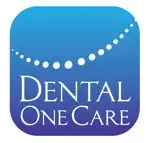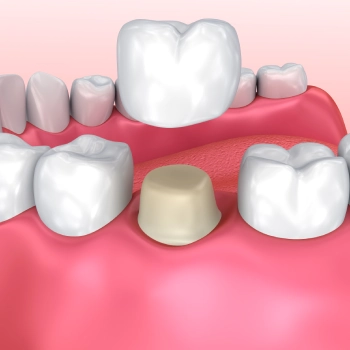Have you ever wondered if your mouth could reject a dental crown? It's a valid question, and the answer is that rarely, an allergic reaction to the dental crown may occur. This is a very rare issue because, prior to discussing a gold or metal-based crown, dentists will inquire about any sensitivities or metal-related medical conditions. We'll explore the fascinating world of dental crowns, their purpose, and the process of getting one. We'll also delve into common problems related to dental crowns.
What is a Dental Crown?
Before we dive into the rejection aspect, let's first understand what a dental crown is. A dental crown is a custom-made cap that is placed over a damaged or weakened tooth. Its primary purpose is to restore the tooth's shape, size, strength, and appearance. Crowns can be made from various materials, including porcelain, ceramic, metal, or a combination of these, and they are designed to blend seamlessly with your natural teeth.
Common Problems Related to Dental Crowns
Now that we've walked through the process of getting a dental crown, let's address some common problems that can arise in relation to dental crowns.
Sensitivity and Discomfort
Some patients may experience increased tooth sensitivity or mild discomfort after getting a dental crown. This is usually temporary and should subside as you get used to the crown. Persistent discomfort may require adjustments.
Loose Crown
Occasionally, a crown may become loose or dislodged. This can happen due to improper bonding or cementation. If this occurs, it's crucial to see your dentist promptly for reattachment or replacement.
Gum Irritation
Poorly fitted crowns or those with rough edges can irritate the gum tissue, leading to inflammation and discomfort. A well-fitted crown should not cause gum problems.
Allergic Reaction
Though rare, some individuals may have allergies to materials used in dental crowns, such as metals or ceramics. If you experience unusual symptoms, discuss the possibility of an allergic reaction with your dentist.
Uneven Bite
Improperly fitted crowns can result in an uneven bite, causing discomfort and potential long-term dental issues. Adjustments may be needed to ensure proper bite alignment.
What should you do if a dental crown falls out?
If your dental crown falls out, it's essential to take the appropriate steps to ensure your dental health and comfort. Here's what you should do:
Retrieve the Crown:
If you can, retrieve the fallen crown. Handle it carefully to avoid damaging it further.
Inspect the Crown and Tooth:
Check the inside of the crown and your tooth. If there is any debris or damage, gently clean the area.
Contact Your Dentist:
Reach out to your dentist as soon as possible. They will advise you on the next steps based on the situation. If it's during regular office hours, call to schedule an appointment. If it's after hours or on the weekend, some dental offices have emergency services or an on-call dentist.
Temporary Measures:
If you're unable to see your dentist immediately, you can try some temporary measures to protect your tooth. Dental cement, which is available over-the-counter at pharmacies, can be used to temporarily reattach the crown. Follow the package instructions carefully. Avoid using household glues, as they are not safe for oral use.
Manage Discomfort:
If you experience any discomfort or sensitivity, you can take over-the-counter pain medication as directed on the packaging.
Avoid Certain Foods:
Until you can see your dentist and get the crown properly reattached, avoid chewing on the side of the mouth where the crown is missing. Also, avoid sticky or hard foods that could further damage the tooth.
Maintain Oral Hygiene:
Continue to brush and floss your teeth carefully, avoiding the area around the missing crown. This helps prevent infection and keeps your mouth as clean as possible.
How to Keep Your New Dental Crown Problem-Free
To ensure that your new dental crown remains problem-free and serves you well for years to come, here are some essential tips:
- Maintain Excellent Oral Hygiene
- Be Gentle with Your Crown
- Regular Dental Check-ups
- Address Teeth Grinding
- Avoid Excessive Force
- Quit Smoking and Tobacco Products
- Regular Cleaning and Check-ups
Conclusion
Your smile and dental health are very significant assets, and our goal at Dental1Care is to support you in keeping them in top condition. We are here to offer excellent care and individualized solutions for any dental issues you may have, regardless of whether you require a dental crown or any other dental service.
Please don't hesitate to contact us to discuss your unique needs or to set up an appointment. To begin your journey towards a more confident and healthy smile, visit our website at dental1care. This is where your path to perfect dental health begins. Together, we can make your grin even more radiant. Get in touch with us right now!





